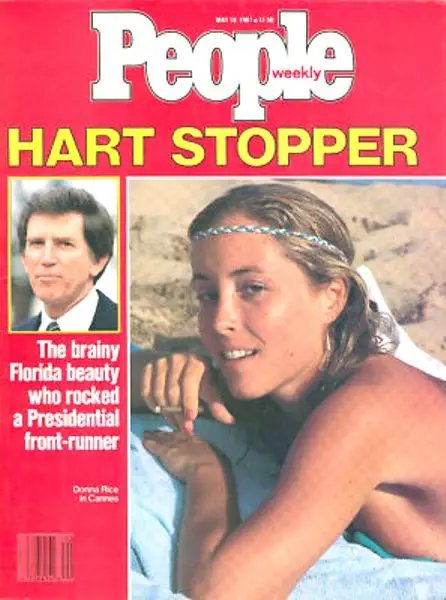A user-submitted topic so I’ll do my best to start a discussion. For anyone not too familiar with Gary Hart in 1987, here’s a little background via Politico:
… Gary Hart—the Colorado senator whose candidacy for the Democratic presidential nomination derailed in 1987 when the Miami Herald learned of his extramarital affair, confronted him in a dark alley on a Saturday night and published the results of its investigation in the following morning’s edition atop Page One.
The question for discussion here is whether the Hart affair set a precedent for reporters to delve into the private lives of politicians rather than focus on hard news stories. Details about back room deals or shady legislation nowadays tend to be shelved for stories about loose zippers and mistresses in Argentina.
More from the Politico piece:
Hart’s story re-emerged Sept. 18 in the New York Times Magazine in a cover article by political writer Matt Bai headlined “How Gary Hart’s Downfall Forever Changed American Politics.” The scandal is explored in even greater length in Bai’s book, All the Truth Is Out: The Week Politics Went Tabloid, which was published this week.
The Gary Hart scandal certainly merits discussing, even at this distance. It’s about sex and politics and journalistic ethics. It makes us wonder: What’s fair game for reporters and how much do voters care—or deserve—to know? These questions are important. But they are also timeless—and have been debated long before and long after Hart’s fall from grace. What Bai calls the week that changed politics forever, I guess I’d call just another week, albeit a dramatic one, in Washington.
Having not voted in my first presidential election until 2004 (missed 2000 by a mere 2 months), I can’t add too much to this discussion. Political stories, since as long as I’ve been reading them, are often uninformative as they focus on vanity over substance. However, is it fair to say that politics has become far more about personal stories and less about substantive political reporting? Perhaps so, but the late 1990s with President Clinton’s escapades in the White House probably didn’t help stem the tide started in 1987.
Would the country be better served if reporters ignored the “blue dress” stories in favor hard news and issues reporting when it comes to politics?
Donate Now to Support Election Central
- Help defend independent journalism
- Directly support this website and our efforts
